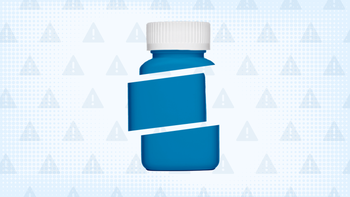
Linzess
Linzess (linaclotide) is a medication that can help with long-lasting constipation. It's approved for adults with constipation from irritable bowel syndrome (IBS) or other unknown reasons. It's also for children ages 6 to 17 who have functional constipation. Linzess (linaclotide) belongs to a drug class called guanylate cyclase-C agonists. It's a capsule that you take by mouth once a day. Diarrhea is a common side effect. Right now, Linzess (linaclotide) is only available as a brand-name medication. There's no generic version yet.

What is Linzess (linaclotide)?
What is Linzess (linaclotide) used for?
Irritable bowel syndrome with constipation (IBS-C) in adults
Chronic idiopathic constipation (CIC) in adults
Functional constipation (FC) in children between 6 and 17 years old
How Linzess (linaclotide) works
Linzess (linaclotide) is a guanylate cyclase-C (GC-C) agonist. GC-C is a protein that works in the intestines.
Linzess (linaclotide) turns on the GC-C protein. This raises the amount of fluid in your intestines and speeds up the movement of food through your gut. These actions help you have regular bowel movements and possibly relieve belly pain.
Drug Facts
More on Linzess (linaclotide) essentials

Get your GoodRx coupon

What are the side effects of Linzess (linaclotide)?
Common Side Effects
Note: Side effects reported for IBS-C. Side effects might differ for CIC.
- Diarrhea (20%)
- Stomach pain (7%)
- Having gas (4%)
- Bloating and feeling full in the belly (2%)
- Diarrhea (4%)
Other Side Effects
- Headache
- Nausea
- Vomiting
- Indigestion or acid reflux
- Feeling an urgent need to have a bowel movement
- Can't control bowel movements
- Infection (e.g., upper respiratory tract infection, sinus infection)
Serious Side Effects
- Severe diarrhea
- Bloody stool or black stool that looks like tar
- Dehydration: confusion, dizziness, exhaustion, fainting, racing heart, dark urine, low amount of urine
Source: DailyMed
More on Linzess (linaclotide) side effects
The following side effects have also been reported
Along with its needed effects, a medicine may cause some unwanted effects. Although not all of these side effects may occur, if they do occur they may need medical attention.
Check with your doctor immediately if any of the following side effects occur:
Rare
Bleeding from the rectum
bloody, black, or tarry stools
confusion
decreased urination
difficulty swallowing
dizziness
fainting
fast heartbeat
hives or welts, itching, or skin rash or redness
increase in heart rate
lightheadedness
loss of bowel control
puffiness or swelling of the eyelids or around the eyes, face, lips or tongue
rapid breathing
shortness of breath
sunken eyes
thirst
tightness in the chest
unusual tiredness or weakness
wrinkled skin
Some side effects may occur that usually do not need medical attention. These side effects may go away during treatment as your body adjusts to the medicine. Also, your health care professional may be able to tell you about ways to prevent or reduce some of these side effects. Check with your health care professional if any of the following side effects continue or are bothersome or if you have any questions about them:
More common
Body aches or pain
chills
ear congestion
excess air or gas in the stomach or intestines
full or bloated feeling
headache
loss of voice
passing gas
stuffy or runny nose
Less common
Acid or sour stomach
belching
indigestion
pain or tenderness around the eyes and cheekbones
pressure in the stomach
stomach discomfort or upset
swelling of the abdominal or stomach area
Other side effects not listed may also occur in some patients. If you notice any other effects, check with your healthcare professional.
Call your doctor for medical advice about side effects. You may report side effects to the FDA at 1-800-FDA-1088.

Pros and cons of Linzess (linaclotide)

Pros
Only need to take once a day
Can start to see improvement as early as a week of taking it every day

Cons
Must take on an empty stomach (30 minutes before a meal)
Can cause diarrhea

Pharmacist tips for Linzess (linaclotide)

Take Linzess (linaclotide) on an empty stomach, at least 30 minutes before a meal. It's a good idea to take the medication at about the same time each day. This helps make it a part of your everyday routine so you remember to take your medication.
If you forget to take a dose of Linzess (linaclotide), skip the missed dose. Wait to take your usual dose the next day. Don't take two doses at the same time. This can cause stomach upset or diarrhea.
Swallow the Linzess (linaclotide) capsule whole. Don't crush or chew the capsule or the beads inside. Talk to your prescriber if you have trouble swallowing it whole; there might be other options for you.
Diarrhea is a common side effect of Linzess (linaclotide). It most often starts within the first 2 weeks of starting the medication. Drink plenty of fluids while taking Linzess (linaclotide). This helps prevent dehydration from any diarrhea that you have.
Stop taking Linzess (linaclotide) and get medical help right away if you have severe diarrhea. Other signs to be aware of include sudden stomach pain and stool that’s bright red or black like tar. Also get medical help right away if you feel dizzy, very tired, faint, or confused. These could be signs of serious dehydration. You should get checked out by a healthcare professional and get treated if needed.
Keep Linzess (linaclotide) in the original bottle. Don't remove the desiccant packet that's included because it keeps your medication dry. Store Linzess (linaclotide) in a dry place at room temperature.
Tips for taking Linzess (linaclotide) if you have trouble swallowing or a feeding tube:
You can open the Linzess (linaclotide) capsule. Then, sprinkle the beads on room-temperature applesauce or bottled water. Follow the instructions carefully, since they're different for applesauce and water. Don't use other foods or liquids since we don't know how they affect the medication.
Once prepared, swallow the medication right away without chewing the beads. Don’t save any leftover mixtures for later. It might not be safe to take after it's left out for some time.
If you have a feeding tube, follow the directions to prepare and take Linzess (linaclotide). Open the capsule and pour the beads into a clean container. Mix the beads with room-temperature bottled water. Then, use a syringe to draw up the mixture and put it through the feeding tube as directed.
If you mix the beads from the capsule with bottled water, you’ll get your full dose of Linzess (linaclotide). This is true even if the beads stay in the cup or if you can't flush them through the feeding tube. The beads won’t disappear in the water. But the medication is on the outside surface of the beads and dissolves into the water.

Frequently asked questions about Linzess (linaclotide)

How to save using GoodRx




What are the risks and warnings for Linzess (linaclotide)?
Linzess (linaclotide) can cause some serious health issues. This risk may be even higher for certain groups. If this worries you, talk to your doctor or pharmacist about other options.

Not for children younger than 2 years of age because of risk of serious dehydration
Linzess (linaclotide) isn't for children younger than 2 years old because of the risk of serious dehydration. In studies with baby animals, the medication caused severe, deadly dehydration.
Studies show that children over 2 years old aren't likely to have a high risk of life-threatening dehydration with Linzess (linaclotide). But it's not clear how much risk there is for diarrhea and serious dehydration in babies under 2.
Keep Linzess (linaclotide) away from children so they don't take it by accident. If you think a baby has swallowed this medication, call 911 right away. You can also call a poison control center at 1-800-222-1222.

Severe diarrhea
Although it's rare, Linzess (linaclotide) can sometimes cause severe diarrhea. This can lead to dehydration, which can be dangerous.
Be sure to drink lots of fluids while taking Linzess (linaclotide). Stop taking the medication and get medical help right away if you have severe diarrhea, severe stomach pain, bloody stool, or black stool that looks like tar. Also get help if you feel dizzy, very tired, faint, or confused. These could be signs of serious dehydration, which needs to get treated quickly.

Linzess (linaclotide) dosage forms
Typical dosing for Linzess (linaclotide)
The dose depends on which type of chronic constipation you have. Take Linzess (linaclotide) on an empty stomach, at least 30 minutes before eating.
Adults
Irritable bowel syndrome with constipation (IBS-C): The typical dose is 290 mcg by mouth once a day.
Chronic idiopathic constipation (CIC): The typical dose is 72 mcg or 145 mcg by mouth once a day.
Children ages 6 to 17 years old
Functional constipation (FC): The typical dose is 72 mcg by mouth once a day.
More on Linzess (linaclotide) dosage forms

Interactions between Linzess (linaclotide) and other drugs
Although certain medicines should not be used together at all, in other cases two different medicines may be used together even if an interaction might occur. In these cases, your doctor may want to change the dose, or other precautions may be necessary. Tell your healthcare professional if you are taking any other prescription or nonprescription (over-the-counter [OTC]) medicine.

How much does Linzess (linaclotide) cost?

Linzess (linaclotide) contraindications
Children younger than 2 years of age
Known or suspected blockage in the stomach or intestines

What are alternatives to Linzess (linaclotide)?
Irritable bowel syndrome with constipation (IBS-C) in adults
Chronic idiopathic constipation (CIC) in adults
Functional constipation (FC) in children between 6 and 17 years old
Long-term constipation due to unclear cause (idiopathic)
Constipation due to opioids
Constipation due to irritiable bowel syndrome (IBS) in women 18 years or older

What is the latest news about Linzess (linaclotide)?

Linzess (linaclotide) images
Get savings updates for Linzess (linaclotide)
Receive price alerts, news, and other messages from GoodRx about Linzess (linaclotide) and other healthcare topics and relevant savings offers.By signing up, I agree to GoodRx's Terms and Privacy Policy, and to receive marketing messages from GoodRx.
References
Best studies we foundAllen, P., et al. (2024). Pediatric functional constipation. StatPearls.
Allergan, Inc. (2023). Linzess - linaclotide capsule, gelatin coated [package insert]. DailyMed.
Lacy, B. E. (2019). Update on the management of chronic idiopathic constipation. American Journal on Managed Care.
MedlinePlus. (2017). Bowel obstruction.
MedlinePlus. (2024). Tube feeding.
Thomas, R. H., et al. (2013). Linaclotide (Linzess) for irritable bowel syndrome with constipation and for chronic idiopathic constipation. P&T: A Peer-Reviewed Journal for Formulary Management.
Compare other Constipation, Irritable Bowel Syndrome drugs
Browse medications
View AllResearch prescriptions and over-the-counter medications from A to Z, compare drug prices, and start saving.













